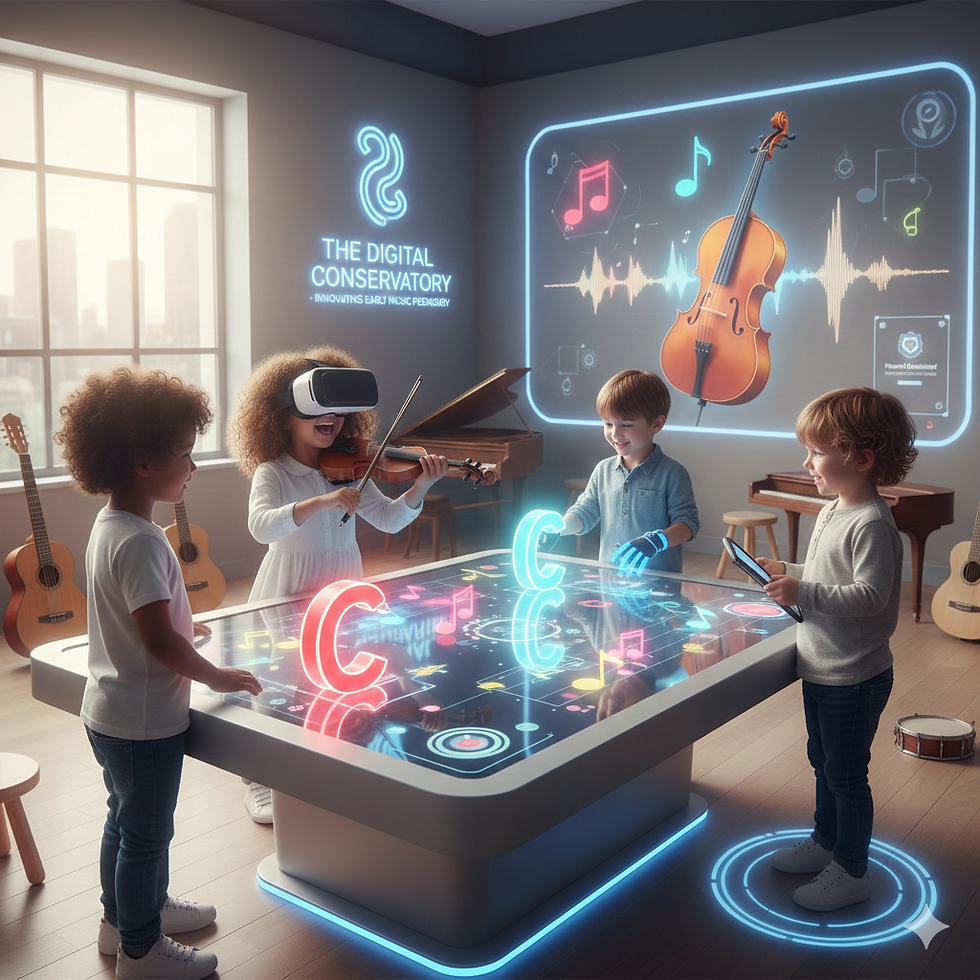"Sing It, Learn It: The Science Behind Musical Memory"
- May 23, 2025
- 3 min read
Updated: May 29, 2025
Hey there, music learners! Ever found yourself humming a commercial jingle days after you heard it, even if you didn't consciously try to remember it? Or maybe a particular song instantly reminds you of a product, even without the ad playing? This isn't just a coincidence; it's a powerful demonstration of how music works on our brains, particularly in the world of advertising.
As musicians, we often focus on theory, performance, and composition. But understanding how music impacts memory and perception in real-world applications, like advertising, can open up a whole new dimension to your musical journey. It's a fantastic way to see the practical, psychological power of the art form we love.

The Unseen Hand: Music as a Device of Implicit Learning
What exactly is "implicit learning"? Think of it as learning without really trying. You're not sitting down with flashcards or consciously memorizing. Instead, your brain is picking up patterns, associations, and information subconsciously. And when it comes to advertising, music is a master of this subtle art.
Here's how it plays out:
Emotional Conditioning: Music is a direct line to our emotions. Advertisers know this. By pairing a specific product or brand with music that evokes feelings of joy, trust, excitement, or nostalgia, they're implicitly training your brain to associate those positive emotions with their offering. You don't consciously decide, "I will now feel happy when I see this brand." Your brain just does it because of the musical association.
Repetition and Familiarity: Jingles and recurring musical themes in ads work on the principle of mere exposure effect. The more you hear something, the more familiar and, often, the more likable it becomes. This constant, subtle exposure embeds the music – and by extension, the brand – deep within your memory without you actively trying to recall it.
Structural Cues: The very structure of a piece of music can act as an implicit learning device. Think about the rhythm, melody, and harmony. These elements can create a distinct "fingerprint" for a brand. Your brain learns to recognize this musical fingerprint and immediately links it to the product, often before you even consciously process the visual or verbal information.
The Recall Advantage: How Music Triggers Memories
So, implicit learning gets the information in there. But how does music become a powerful tool for recall?
The "Earworm" Effect: We've all experienced earworms – those catchy tunes that get stuck in your head. Advertisers strategically craft jingles to be memorable and "sticky." This inherent memorability means the musical cue is readily available for recall. When you hear the jingle, it acts as an immediate trigger for the associated product or brand.
Context-Dependent Memory: Our memories are often tied to the context in which they were formed. If you consistently hear a particular song or jingle with a specific ad, that music becomes part of the "context" for remembering the product. Later, simply hearing that music (even outside the ad) can pull the product information right back to the forefront of your mind.
Emotional Recall: Because music creates such strong emotional associations, it can be a powerful retrieval cue. When you hear the music that made you feel happy or secure in an ad, those feelings are rekindled, and with them, the memory of the product. It's why a certain song can instantly transport you back to a specific moment or feeling.
What Does This Mean for You, the Music Learner?
Understanding this relationship between music, memory, and advertising isn't just a cool psychological fact; it's a valuable insight for your own musical development:
The Power of Simplicity and Catchiness: While complex compositions are incredible, advertising highlights the undeniable power of simple, memorable melodies and rhythms. As you compose, consider how you can create hooks that stick with your audience.
Emotional Intelligence in Music: Practice deliberately crafting music that evokes specific emotions. This skill is crucial whether you're scoring a film, writing a song, or, yes, even composing for a commercial.
The Subtlety of Influence: Realize that music doesn't always need to be front and center to have a profound impact. Its ability to work implicitly, beneath conscious awareness, is a testament to its pervasive influence.
Beyond the "Art for Art's Sake": While music is undeniably an art form, understanding its practical applications can open up new avenues for your skills and career. Jingles, background scores, and branding anthems are all legitimate and creative expressions of musical talent.
So, the next time you hear a commercial jingle that sticks in your head, don't just dismiss it. Analyze it. Think about why it's so effective. How does it use rhythm, melody, and harmony to connect with your memory and emotions? By doing so, you're not just understanding advertising; you're gaining a deeper appreciation for the profound and often unseen power of music.



Comments